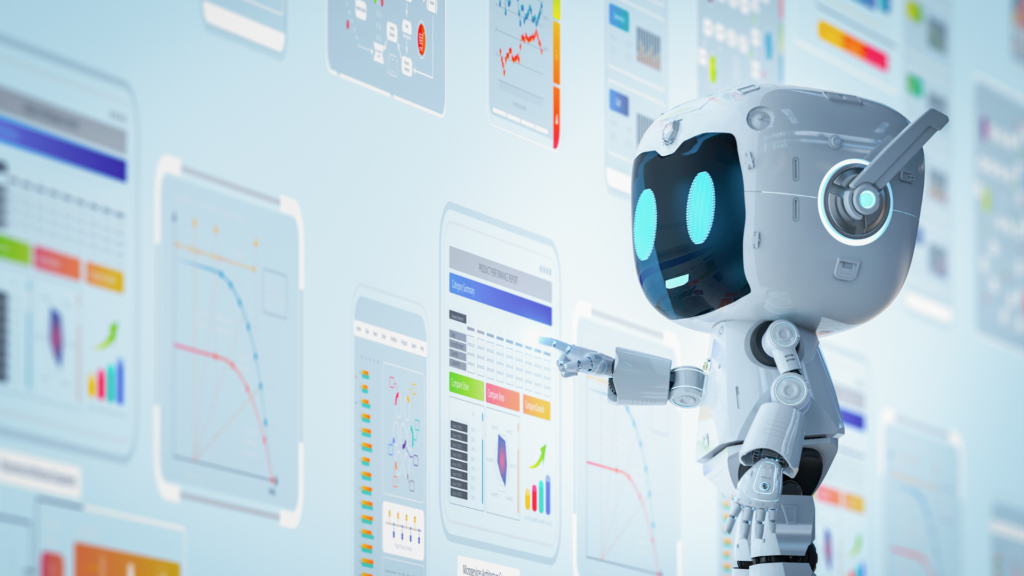
The Birth of AI Agents
The concept of AI agents dates back to 1956, when researchers gathered at the Dartmouth Conference, marking the official birth of artificial intelligence as a field.
Early systems, like the 1960s program ELIZA, acted as the first rudimentary AI agents, mimicking human conversation. While primitive by today’s standards, these early innovations paved the way for the intelligent, task-driven agents we rely on today.
What Are AI Agents? A Beginner’s Guide to AI Workers and Co-Pilots

Imagine a world where repetitive tasks disappear, complex decisions are simplified, and technology actively works alongside you, not just for you.
Sounds futuristic?
It’s already happening, thanks to AI agents.
But what exactly are they, and why are they such a big deal in tech today? By the end of this article, you’ll have a clear understanding of AI agents, their use cases, and how they’re quietly reshaping the way we work and live.
What Is an AI Agent?
At its core, an AI agent is software powered by artificial intelligence designed to perform specific tasks independently.
Think of it as a virtual worker or AI copilot that analyzes data, makes decisions, and takes action, all without constant human input.
Unlike traditional software, which waits for you to give it instructions, AI agents can learn, adapt, and even anticipate your needs.
This makes them incredibly useful across industries like healthcare, sales, marketing, and more.
How Do AI Agents Work?
AI agents rely on a combination of:
- Machine Learning: They learn from data and improve over time.
- Natural Language Processing (NLP): This allows them to understand and respond in human-like ways.
- Automation: Once trained, they can complete tasks on their own, such as sending emails, summarizing meetings, or analyzing customer data.
For example, in a conversational CRM like Daialog, AI agents can handle everything from managing leads to creating reports, reducing the manual effort required by sales teams.
The Different Types of AI Agents
Not all AI agents are the same. Here are the most common types and what they’re used for:
1. Task-Specific Agents
These agents focus on completing specific, repetitive tasks. Think of a chatbot answering customer queries or an AI assistant scheduling meetings.
2. Decision-Making Agents
These agents analyze complex data to make recommendations or decisions. For example, in sales, they can prioritize leads based on their likelihood to convert.
3. Autonomous Agents
These are the most advanced. They can operate independently in dynamic environments, like AI-powered trading bots or self-driving car systems.
Why AI Agents Are Game-Changing
You might wonder, “Why should I care about AI agents?” Here’s why:
1. Efficiency Boost
AI agents take over time-consuming tasks, letting you focus on work that truly matters. For instance, sales teams using AI workers can save hours on data entry and lead tracking.
2. Improved Accuracy
By processing large amounts of data in seconds, AI agents reduce human error. This is especially useful in areas like healthcare and finance, where precision is critical.
3. Scalability
Need to handle 1,000 customer queries instead of 10? AI agents scale effortlessly, delivering consistent performance no matter the workload.
How AI Agents Fit Into Your Daily Life
While AI agents sound like something from a sci-fi movie, you probably use them daily without realizing it. Here are a few examples:
- Personal Assistants: Tools like Siri, Alexa, or Google Assistant.
- Email Organizers: Features in Gmail that sort spam or suggest replies.
- Customer Service Chatbots: The friendly bot helping you track a package or book a flight.
What Makes AI Agents Different From AI Tools?
It’s easy to confuse AI agents with general AI tools.
The difference?
AI tools are passive—they help you when asked.
AI agents are active—they identify problems and solve them without needing constant guidance.
Take a CRM as an example. A traditional CRM might store customer data and create reports when requested. A conversational CRM with AI copilots, like Daialog, goes further by analyzing customer behavior, suggesting follow-ups, and even automating outreach.
The Future of AI Agents
AI agents are still in their early stages, but their potential is massive. As technology improves, these systems will become smarter, faster, and more integrated into our lives.
In the workplace, AI agents will likely become essential tools, not optional add-ons. Imagine entire sales or marketing teams supported by AI workers, automating up to 90% of administrative tasks. This means less busy work and more time for creativity, strategy, and growth.
Should You Care About AI Agents?
If you want to stay ahead in a world increasingly driven by automation, the answer is yes. Understanding and leveraging AI agents will be a competitive advantage in virtually any industry.
Whether you’re a small business owner, part of a sales team, or just someone curious about the future of tech, AI agents are worth exploring. They’re not just tools—they’re partners in efficiency.
Welcome to the future of work
AI agents are much more than a tech trend—they’re a glimpse into the future of work and life. As these AI copilots continue to evolve, their impact will only grow, changing the way we interact with technology forever.
Curious to see AI agents in action? Check out how Daialog’s conversational CRM uses AI agents to redefine sales workflows. From task automation to data analysis, it’s all about making your life easier.
The future is here. Are you ready to embrace it?

